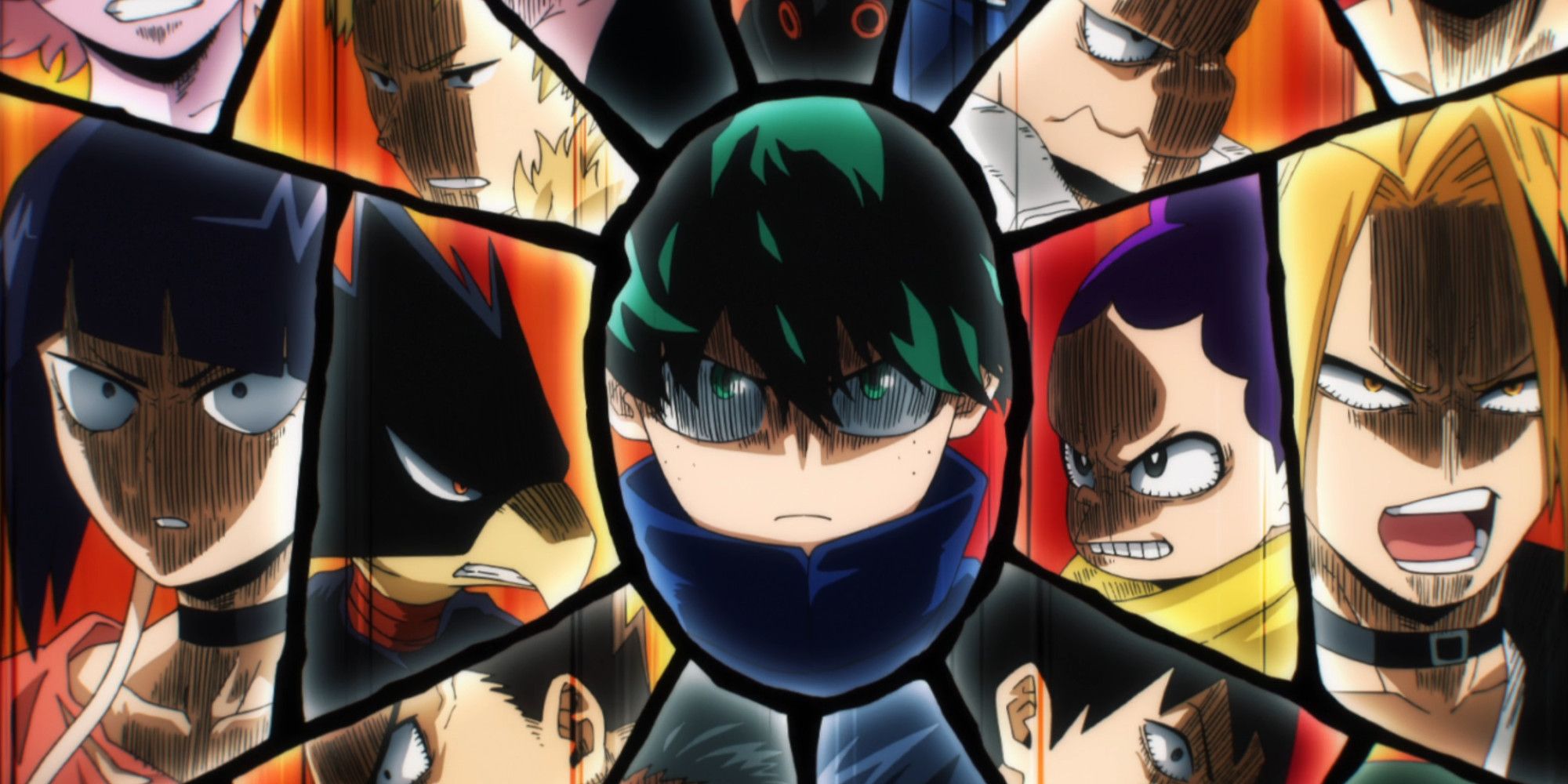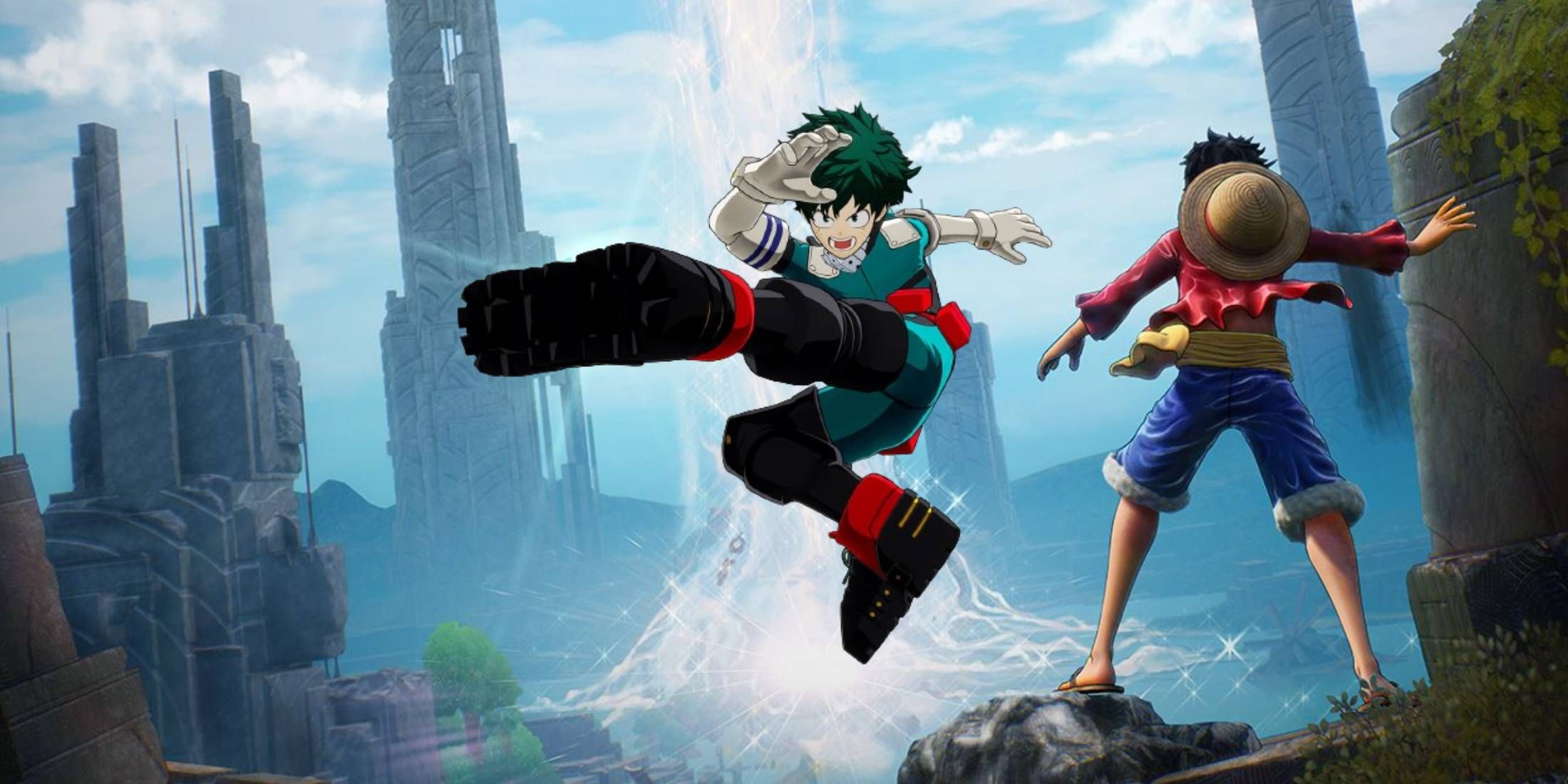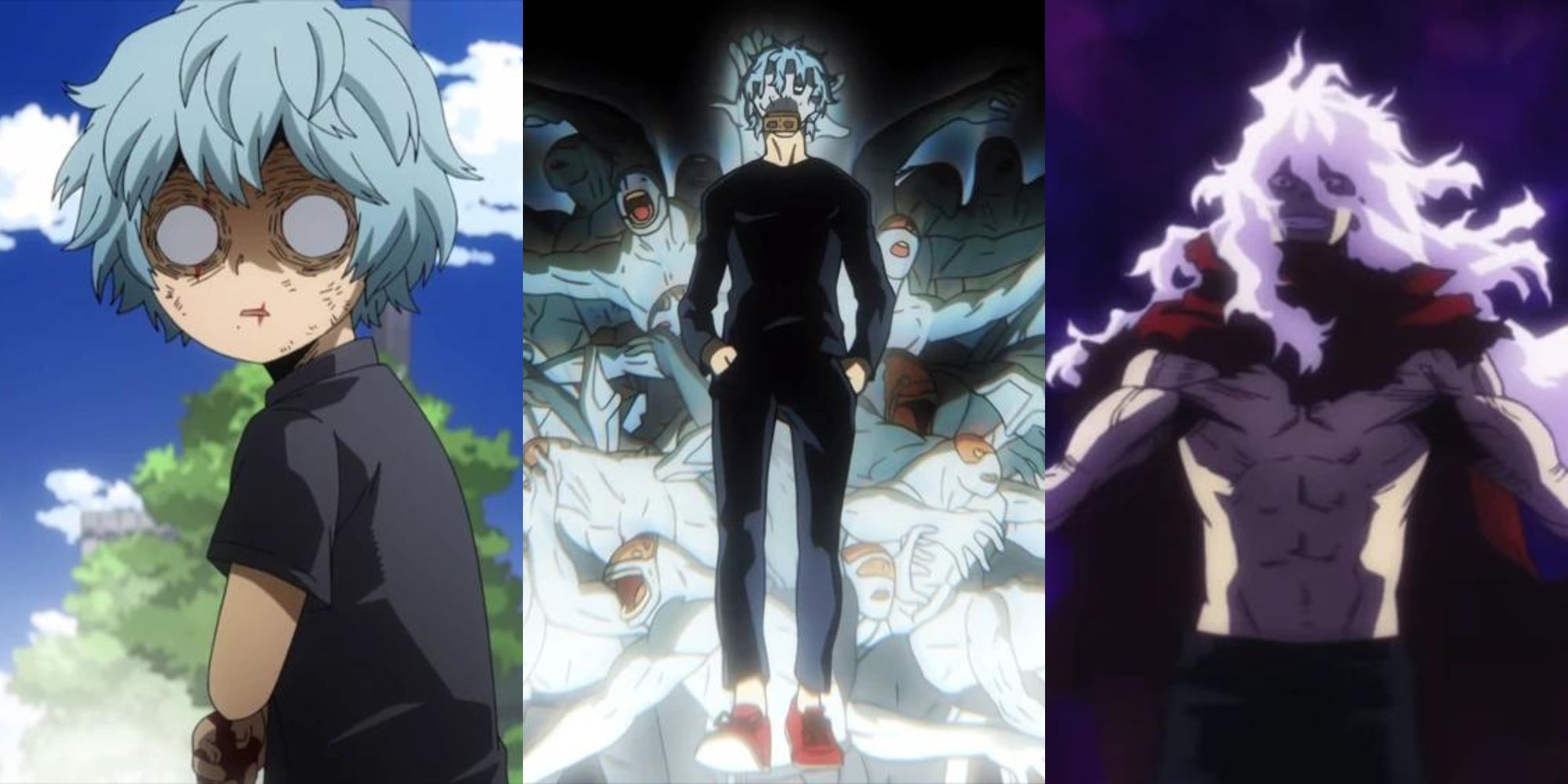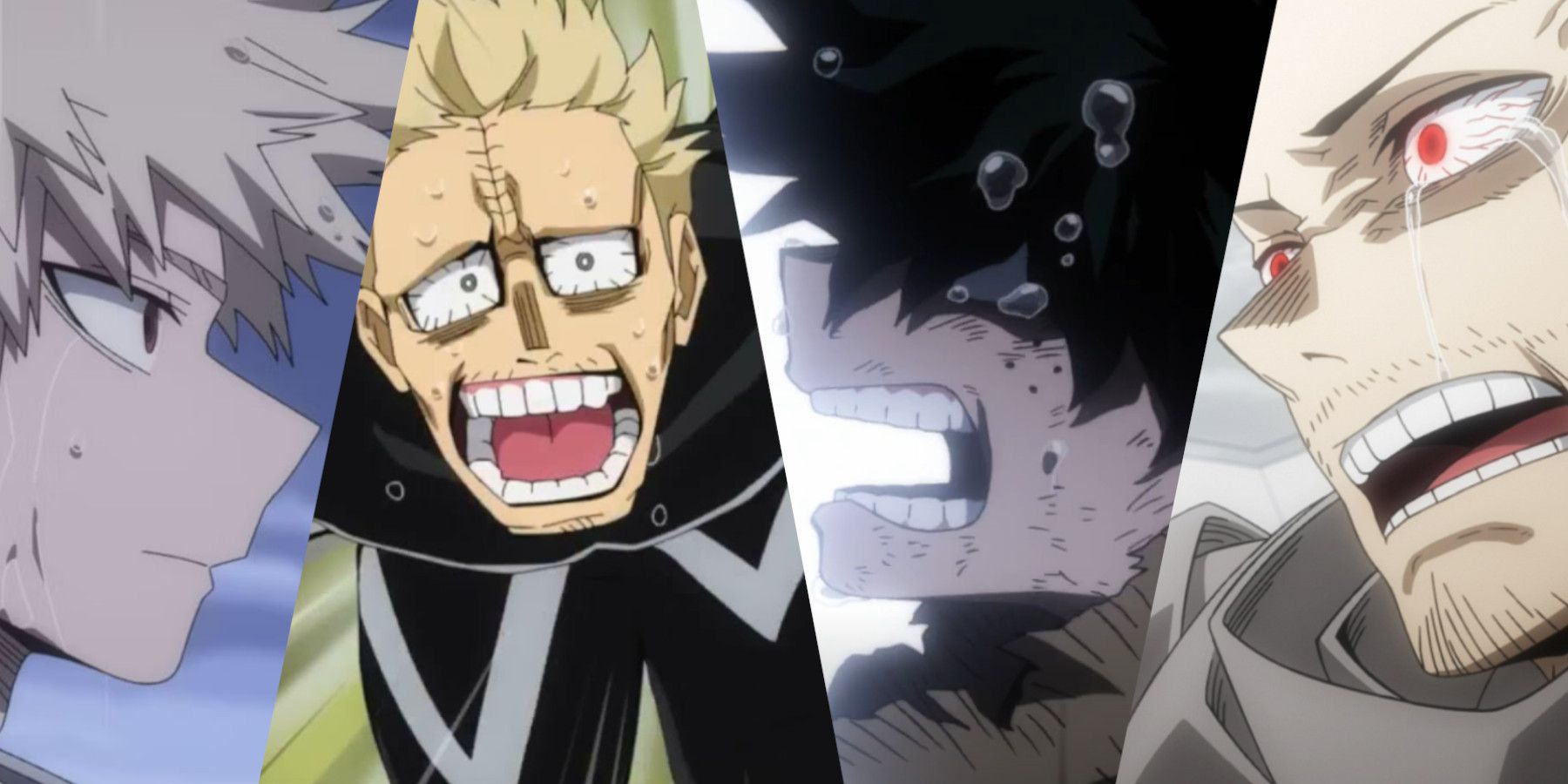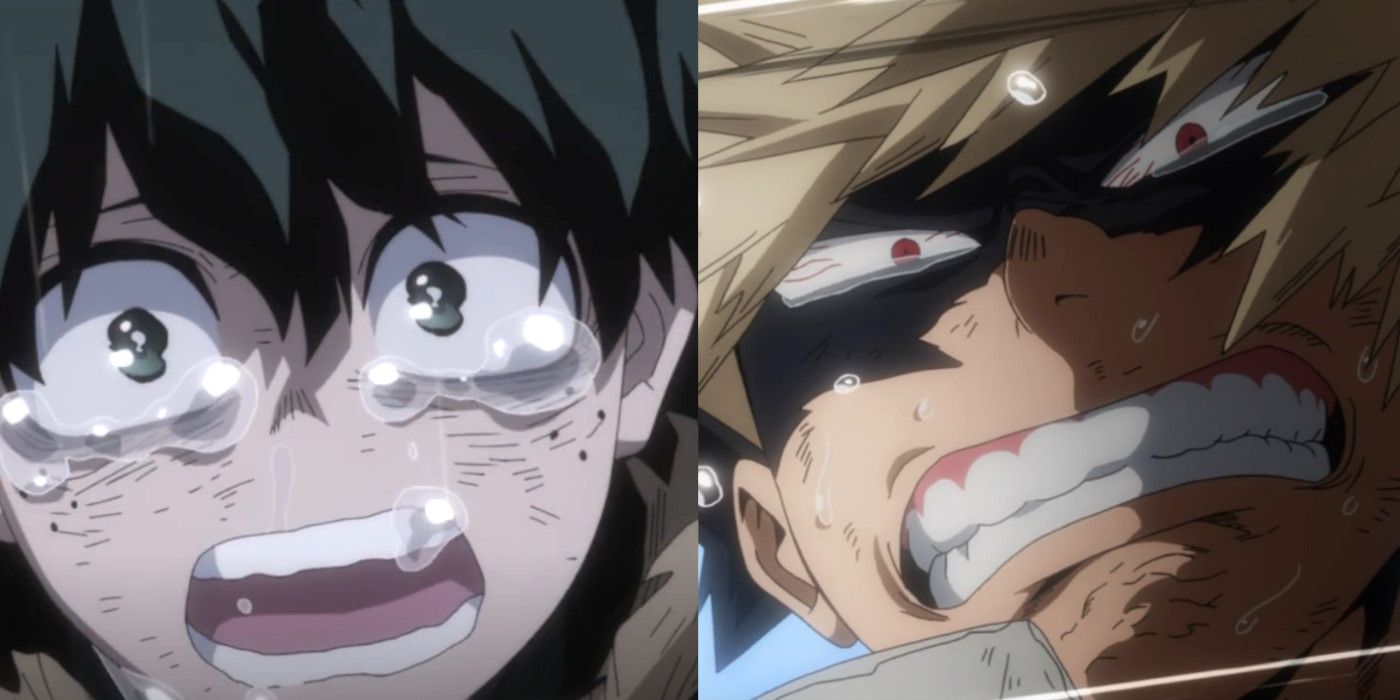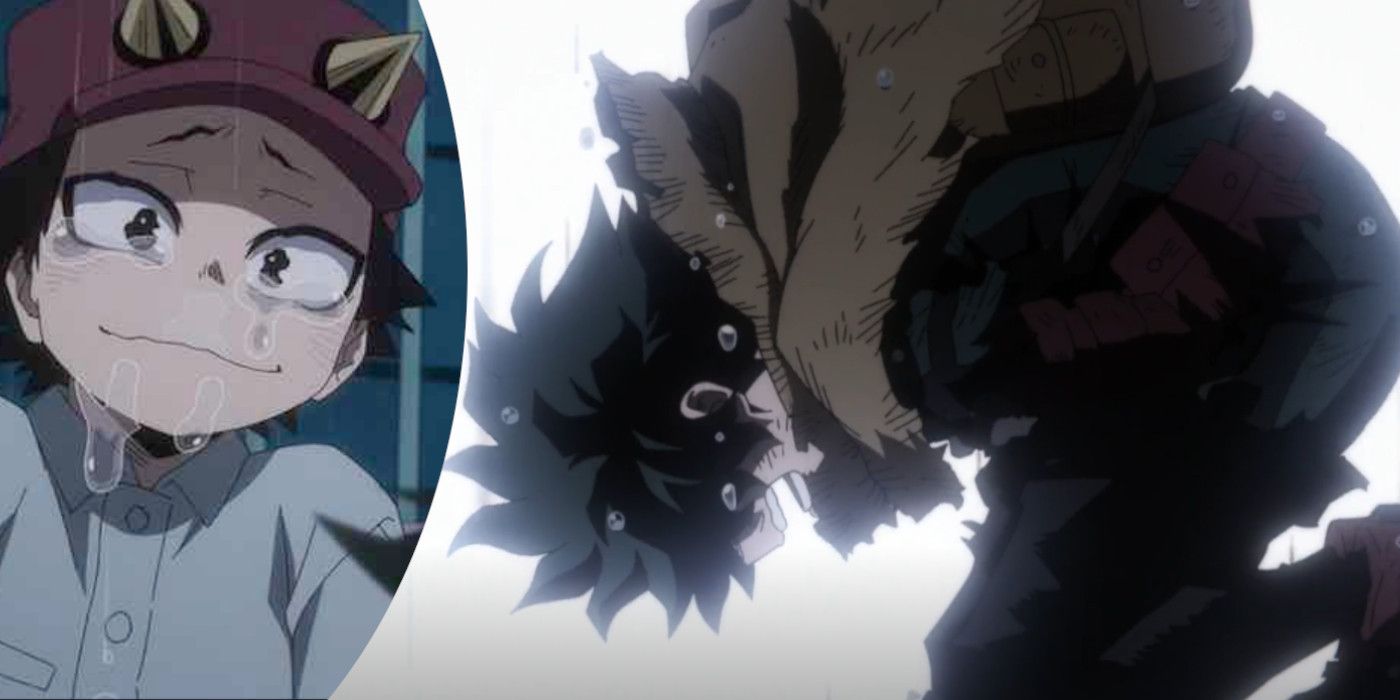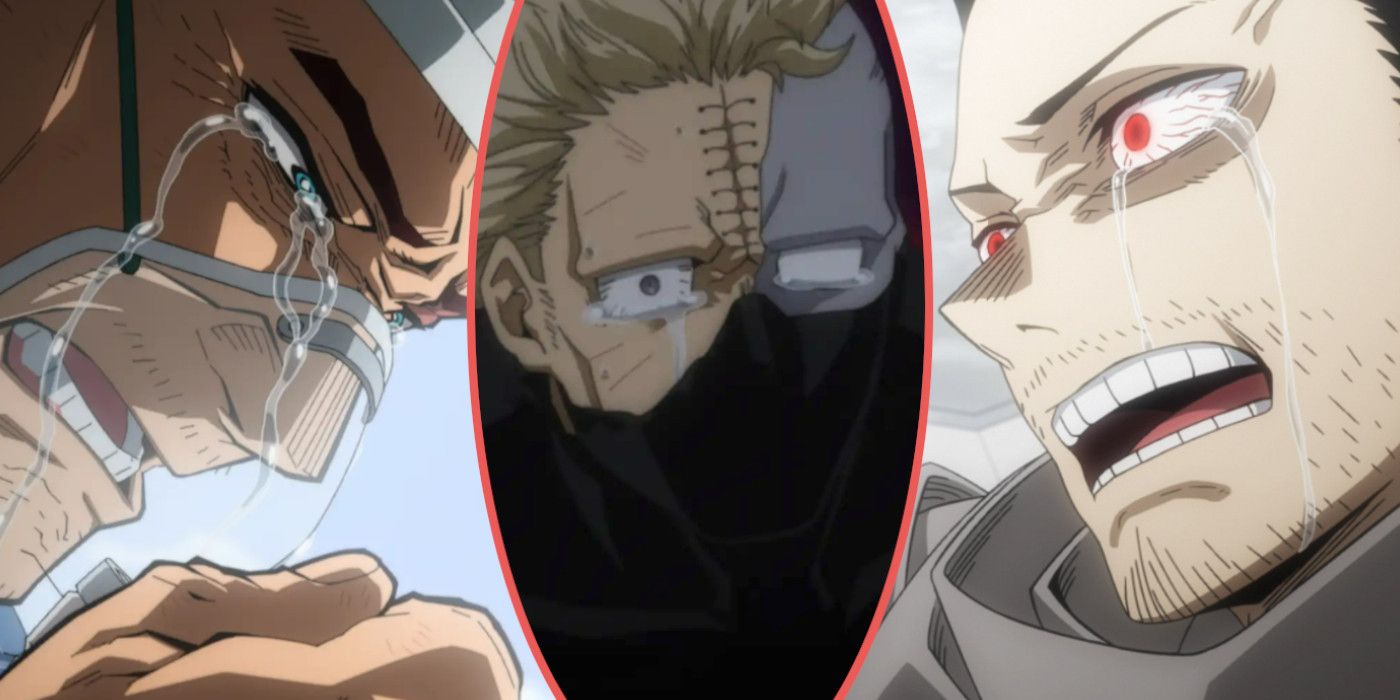The following article contains spoilers from My Hero Academia, Season 6, episode 24. One of Deku's most endearing traits is that he is very in touch with his emotions, and, much like his supposedly useless name, he has taken the term "crybaby" and turned it into a compliment. Unlike Demon Slayer's Zenitsu Agatsuma or Thunder McQueen from Jojo's Bizarre Adventure: Stone Ocean, Midoriya Izuku's tears are not constantly used for comical relief, but rather inspire the masses instead.
Toxic masculinity abrasively dictates expectations, unfairly deciding how men are supposed to conduct themselves; however, Deku, the crybaby hero, is here to defeat this invisible enemy! And upon closer inspection, he is not the only guy in My Hero Academia who has some emotional hurdles to overcome.
Sidelining the Tough Guy Act
Izuku has always been a sensitive soul, getting teary-eyed at the slightest whim, and not in that annoying pity-party way, just simply putting his compassion on full display. In many cultures across the globe, men are generally not encouraged to share their emotions, specifically the soft and "feminine" ones, and seeing a man openly shedding tears would cause most to look away in embarrassment and shame. Deku may not always be proud of his tears, but others admire the boy Hero more because of how genuinely he presents himself, and don't perceive his crybaby syndrome to be a weakness in the slightest. Guys like Mineta Minoru, Shoto Todoroki, Mashiro Ojiro, and many others look up to Izuku, not because his Quirk is the greatest, but due to his altruism, kicking toxic masculinity to the door.
Bakugo, on the other hand, is the epitome of a typical "manly man," who likes to assert his dominance through aggression, arrogance, and pure, unwavering ambition. He refuses to let silly sentiments get in the way of success and is an independent powerhouse who never shows any signs of fear. However, his brash hot-headedness has not scored him any favors in the popularity department. Not to say that Bakugo is hated, but he's also pretty hard to love (initially, anyways.) The reality of the Heroes' situation in Season 6 has been the rude awakening that Bakugo needed, propelling him (quite literally) to get in touch with his emotions and discover his heroic instincts in the process.
After shielding Deku with his own body in Season 6, episode 9, Bakugo makes no effort to hide his concern regarding his comatose state, screaming through the hallways as he searches for his fallen friend. Bakugo is also the first to take action against Dark Deku's suicide mission, after assessing his classmate on an emotional level, instead of focusing on the boy's multiple Quirks like the other Pro-Heroes. When Class A finally gets to face Deku, Bakugo sets the scene and then decides to hang back, showing empathy for his classmates, who are also desperate to have their say. Finally, the former egomaniac admits his flaws and owns up to his bullying ways, showing the deepest regret while begging for forgiveness. This impassioned apology was laid bare for all of Class A to see and is arguably one of the most emotional episodes in the entire series, one which brought many fans to tears.
"I'm Not Crying You're Crying"
The waterworks spill over into Season 6, episode 24 after a controversial public debate finally concludes with the "crybaby hero" being accepted back into society. Ochaco's whole plan was to get the vengeful civilians to consider how vulnerable the young hero actually is, while Izuku's sobbing inspires the crowd (and viewers at home) to shed a few tears of their own. Ippan Josei, Kota, and many others have been truly touched by Deku's strong virtues, and couldn't care less if he gets a bit weepy at times. And these heartwarming sentiments have broken through the fourth wall and infiltrated the fandom, where the concept of masculinity is arguably being redefined.
It is unfair to assume gender in any circumstance; however, reddit statistics show that over 60% of users are men, so it's safe to say a large portion of comments come from a male audience.
The My Hero Academia Episode Discussion Threads on reddit are generously adorned with praise for Season 6; however, the general topic of discussion surrounding episodes 23 and 24 follows an unexpected trend. Many users openly express how much they sobbed wholeheartedly alongside Deku and the gang during this segment of the storyline, without a worry in the world about how "un-manly" their confession may be perceived. Not too long ago, a public statement of this nature would inspire toxic masculinity to take hold, chastising and bullying the crybaby viewer for their so-called feminine response. Instead, the contemporary community all pile on to reveal their own sobfests, with comments like these making the rounds:
" Can this season please stop making me cry every 15 seconds? " ( Artifice_Purple )
"I won’t lie, I openly bawled this episode."
" I thought it was hard keeping my eyes dry during Katsuki's apology... Ochaco's speech hit so much harder " ( Saiyan26 )
and " WHOEVER IS CUTTING ONIONS RIGHT NOW NEEDS TO STOP AND THEY CUT THEM FOR ABOUT 21 MINUTES " ( carlosjohnson123 )
"Can’t Fight This Feeling"
Although My Hero Academia is a rather male-dominated storyline that could learn to celebrate the female roles a bit more thoroughly, there is an extensive assortment of male characters to work with. Besides a select few, most of the guys are shown to be dealing with some kind of internal dilemma, which requires them to get in touch with their emotions. Regardless of how prominent or powerful, big guns such as Endeavor, Aizawa, Gran Torino, Shigaraki, Twice, Bakugo, Shoji, and Shinso (the list goes on and on!) have had to deal with the heartbreaking skeletons in their closets. Burying emotional anguish only gets one so far in life, before facing the facts becomes inescapable. As Elbert Hubbard stated:
" The stronger a man is, the more gentle he can afford to be."

